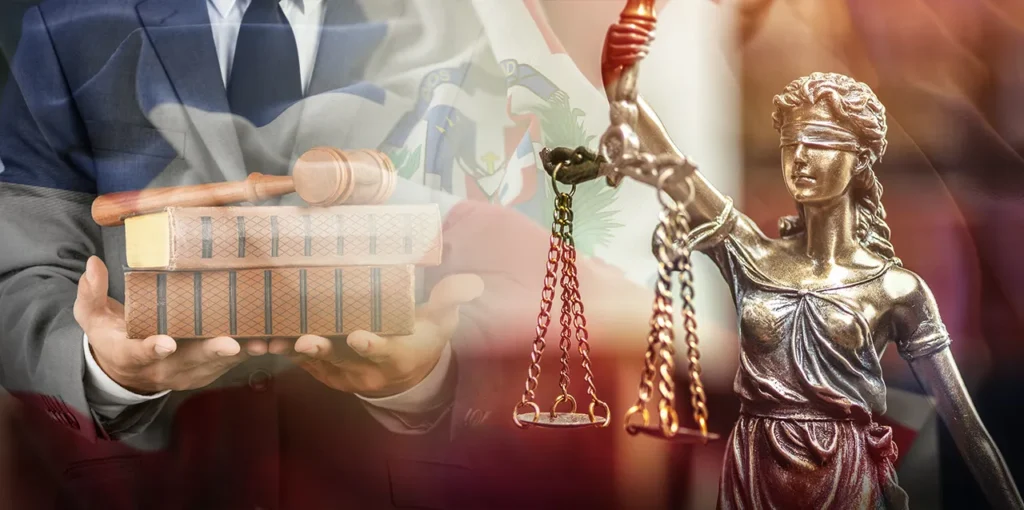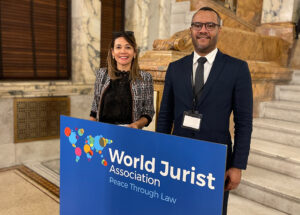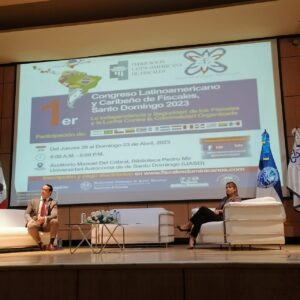We can define the concept of criminal procedure code as the set of rules that governs criminal procedure in the Dominican Republic. It is constituted of 28 fundamental principles, the identification of the criminal jurisdiction and the procedural subjects, as well as all the procedural activity that takes place from the beginning of the investigation of a crime until its conclusion in the last instance.
When we talk about principles in the legal field, we see that they have always existed since the origins of Law; today, the general principles of law are used as a guide or guideline for subsequent legal regulations to be created in society, or as a reference when an interpretation of current regulations is required. Their function is to describe how the legal system works both in the values supporting it and in its technical aspects.
The Dominican criminal process is governed by 28 fundamental principles, which are the basis of the remaining 421 articles of the criminal procedure code. The first principle refers to the primacy of the constitution and treaties, which provides, as its name indicates, the direct and immediate application of the Constitution and International Treaties to cases submitted to criminal jurisdiction, that is, they cannot be contrary or contradict one another. Principle No. 2 refers to the solution of the conflict by adequate means in order to restore social harmony, (alternative solutions for extrajudicial conciliation), thus recognizing the criminal process as an extreme measure of criminal policy.
Principle No. 3 is prior trial, which establishes that any limitation of a person’s right will necessarily have a jurisdictional character, arranged in a trial, in a court, by a natural judge (4th. Principle). The principle of impartiality and independence of judges refers to the need for this key player in the system to act in accordance with the law and with complete independence from other State powers. It is a transcendental principle for the State of Law.
Principle No. 6 on citizen participation, grants the possibility of every citizen to act before justice in accordance with the rights and conditions provided for in the code. The next principle, legality of the process, refers to the existence of the law before the commission of the crime. Its essence is that the person is judged according to pre-existing laws to the act that is imputed to him as provided in article 69 numeral 7 of the Constitution.
The principle of reasonable time comes to emphasize the need for every person to be tried and their case defined in a reasonable time. Notwithstanding the other terms that are typical of the procedural activity throughout the code, the judge must always take into account the right of a party to have their case judged within the reasonableness provided by the legislator.
Another principle is that of single prosecution, which is also known as “non bis in idem”, which means “no one can be tried twice for the same cause”.
Although the principle of the dignity of the person is number 10, it is actually the principle on which all the others revolve: every person, by just being a human, is invested with a series of rights that prohibit his discrimination and the State is obliged to protect him: the Dominican State is based on respect for human dignity (art. 7 of the Constitution).
Principles 11 and 12 refer to equality before the law and equality between the parties, respectively. The first, refers to the equality that all people must be treated in the justice system, and the second refers to the equality of resources with which the parties in the criminal process must find themselves, that is, to have the same opportunities, provide evidence, debate, etc.
The principle of non-self-incrimination and the presumption of innocence are closely related: no one can be forced to testify against himself because in principle he considers himself innocent. These principles, together with the principle of the right to defense, form a normative plexus of vital importance in the criminal process. The right of defense is not only having a lawyer, it is providing everything that is available to the accused in order to prove his version of the facts.
The principle of the statute of freedom is consigned in article 15 of the criminal procedure code, which assumes that freedom is the rule and prison the exception. Although this principle is widely invoked in the courts and in practice it might seem that the opposite is applied, the reality is that the alternative measures provide the opportunity to maintain this exception and therefore, in the cases where it applies, in accordance with the provisions of the code, help to maintain compliance with this statement.
Together with the previous principle, there is the principle of the reasonable limit of preventive detention, based on the fact that preventive detention cannot have the purpose of an early sentence, since this would entail a violation of the principle of presumption of innocence. In the same way, the principle of the personality of the persecution assumes that no one can be persecuted, investigated, accused, or subjugated due to the act of another, it must be due to their own act. In the past, unfortunately, there was the practice of detaining a family member of an investigated person in order for him to turn himself in. This is no longer possible due to the express prohibition of the rule.
And finally for this first article, principle No. 19 refers to the precise formulation of charges. The first thing a defendant needs to be able to defend himself is to know what he is accused of in a precise and circumstantial manner, in order to enable him the possibility of understanding his case and defending himself as provided by law.
All these principles and those that we will continue to study in the next article form the guidelines and parameters under which the criminal process will be governed; Its observation and compliance is necessary for all parties involved in the process, judges, prosecutors, lawyers, victims, defendants, third parties civilly sued, in order to achieve a fair application of punitive and restorative justice.
Sonia Hernández is a criminal lawyer, former prosecutor of the Santo Domingo Province. She has a master’s degree in Fundamental Rights from Universidad Carlos III de Madrid, Spain and a specialization in Criminal Procedure Law from the Universidad Autónoma de Santo Domingo. She is currently a practicing lawyer and expert consultant on human trafficking for the International Justice Mission, Dominican Republic (IJM).






